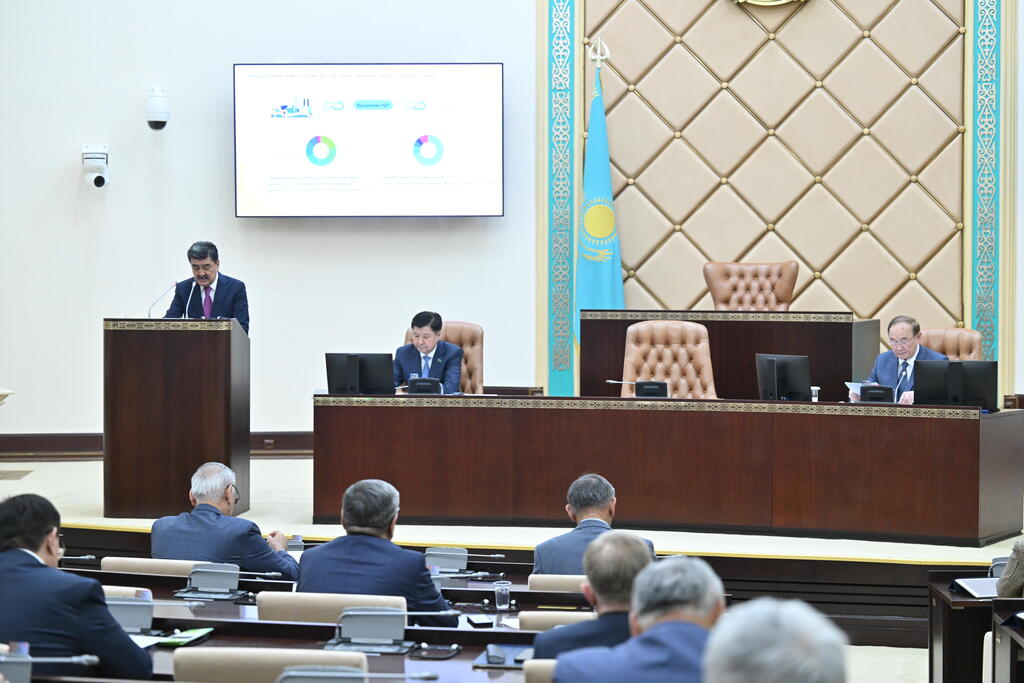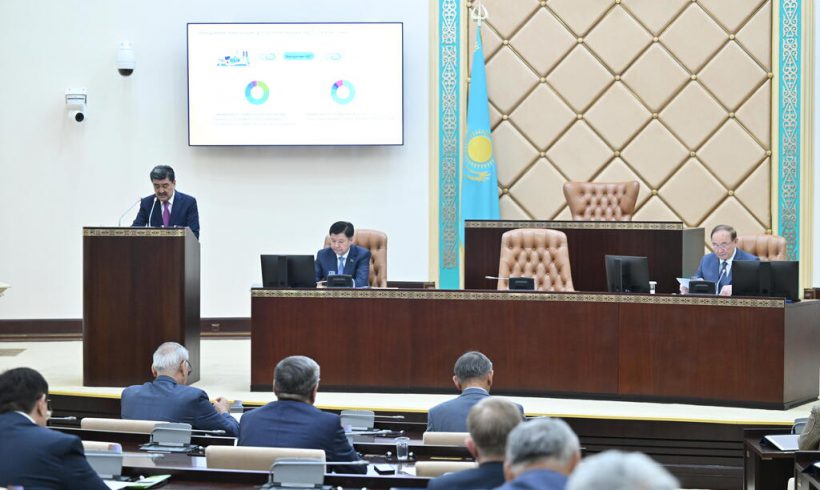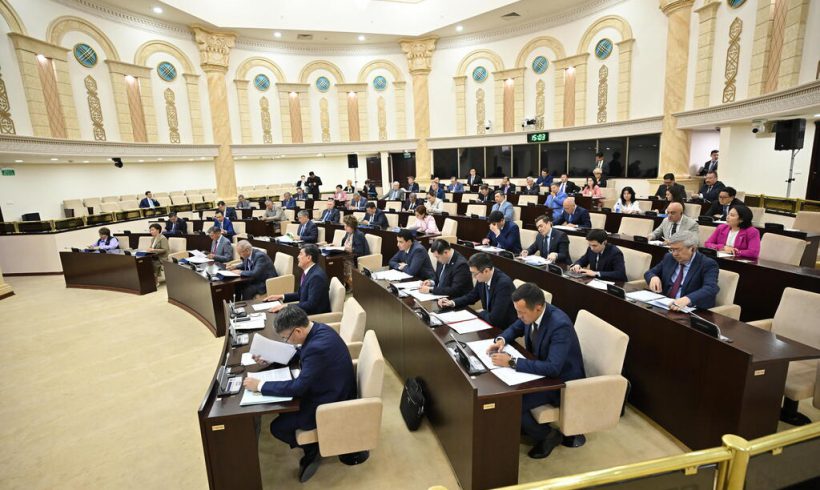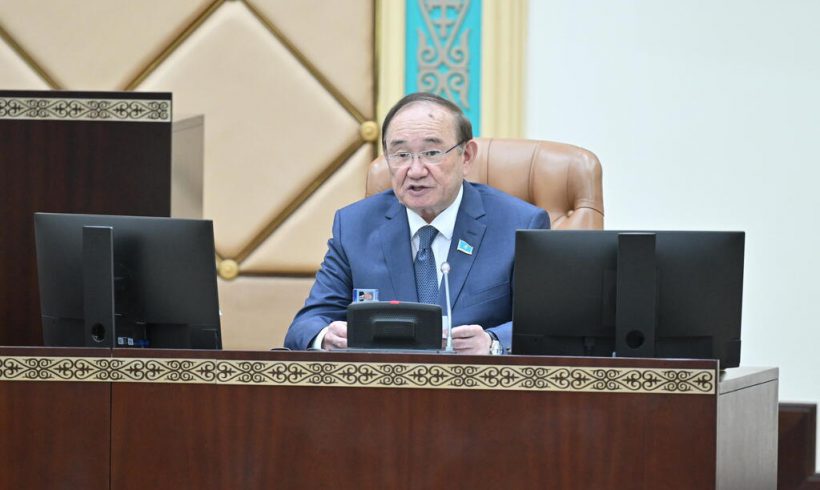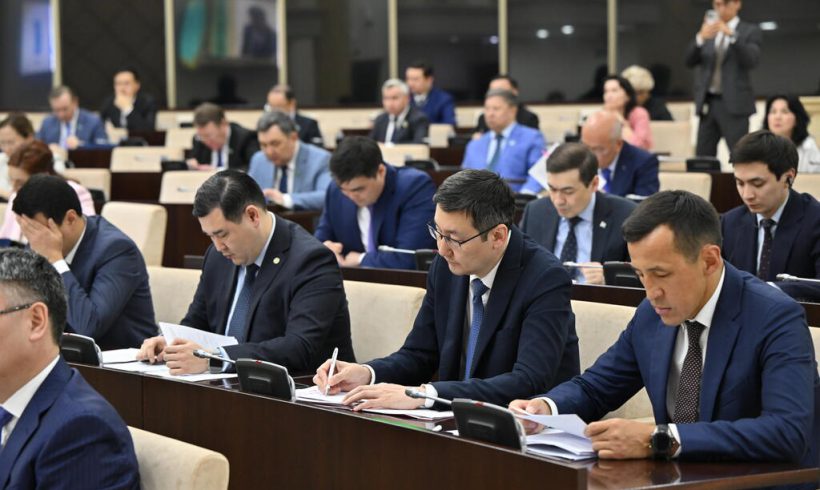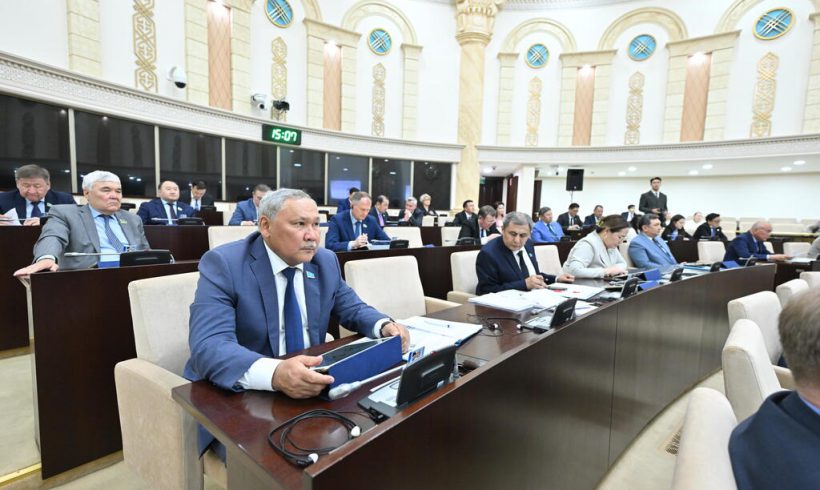A Government Hour was held in the Senate of the Republic of Kazakhstan, focusing on the implementation of the Environmental Code, particularly on state incentives and support for attracting green investments and promoting the adoption of best available techniques (BAT).
A specially organized exhibition in the Senate building showcased advanced technologies and environmental initiatives. Participants were introduced to successful practices in implementing innovative solutions aimed at reducing environmental impact.
During the session, Deputy Chair of the Senate, Mr. Zhakip Asanov, emphasized that Kazakhstan is facing a complex and large-scale task — the formation of a comprehensive system for introducing BAT across key industrial sectors. He noted that only a holistic approach — combining legislative, economic, infrastructural, and educational measures — can ensure sustainable results and reduce the country’s environmental footprint.
“It is essential to integrate environmental priorities into regional development strategies not just as declarations, but through tangible infrastructure projects, detailed environmental risk maps, and publicly accessible regional registries of green initiatives. Of particular importance is the training of qualified personnel — green managers capable of implementing environmental transformation on the ground. We must also promote the inclusion of environmental disciplines and modules in university and college curricula, strengthen awareness efforts among the public and business community, and foster scientific and technological innovation in this field,” the Deputy Speaker stated.
In turn, Chair of the Committee on Agrarian Issues, Environmental Management, and Rural Development, Mr. Ali Bektayev, noted that the implementation of integrated environmental permits and the transition to BAT is not merely a technological upgrade, but a strategic step toward enhancing the overall environmental responsibility of enterprises, reducing pollution, and improving the quality of life for citizens.
“It is crucial to act gradually and systematically, taking into account the realities and specifics of Kazakhstan’s industries. The development of BAT reference documents must be based on sectoral characteristics, scientific evidence, and practical applicability. However, today we face serious challenges — the lack of centralized coordination and a comprehensive approach to implementing advanced technologies. Moreover, environmental priorities are often not integrated into regional strategies, which complicates the achievement of lasting environmental outcomes,” Bektayev said, stressing the need to strengthen cooperation between government, business, and the expert community.
During the session, the Minister of Ecology and Natural Resources, Mr. Yerlan Nysanbayev, also delivered a report. He briefed senators on the current situation and prospects for environmental initiatives across the country’s regions. The minister highlighted the plans of major national companies to adopt advanced environmental standards and modernize their production facilities. Special attention was given to the development of 20 BAT reference documents for the most energy-intensive and environmentally impactful sectors — such as energy, oil and gas, chemical, and metallurgy industries. The Minister also reported on the preparation of a Country Programme for the Green Climate Fund, covering a wide range of strategic areas.
Participants also noted that the short-term economic rationale of businesses often leads to systemic environmental and financial risks, creating contradictions between national environmental and economic policies. Senator Olga Bulavkina emphasized the need for stringent legislative requirements that ensure environmental safety and incentivize industrial modernization — including mandatory use of integrated environmental permits for all hazardous production facilities, with phased tightening of regulatory thresholds.
At the conclusion of the Government Hour, participants stressed the importance of consolidating the efforts of government, business, and the scientific community to successfully implement the country’s environmental modernization agenda and transition to a sustainable economy. Proposals were developed to improve the regulatory framework and enhance mechanisms for encouraging ecological transformation. The relevant recommendations will be submitted to the Government and authorized state bodies for further consideration.


